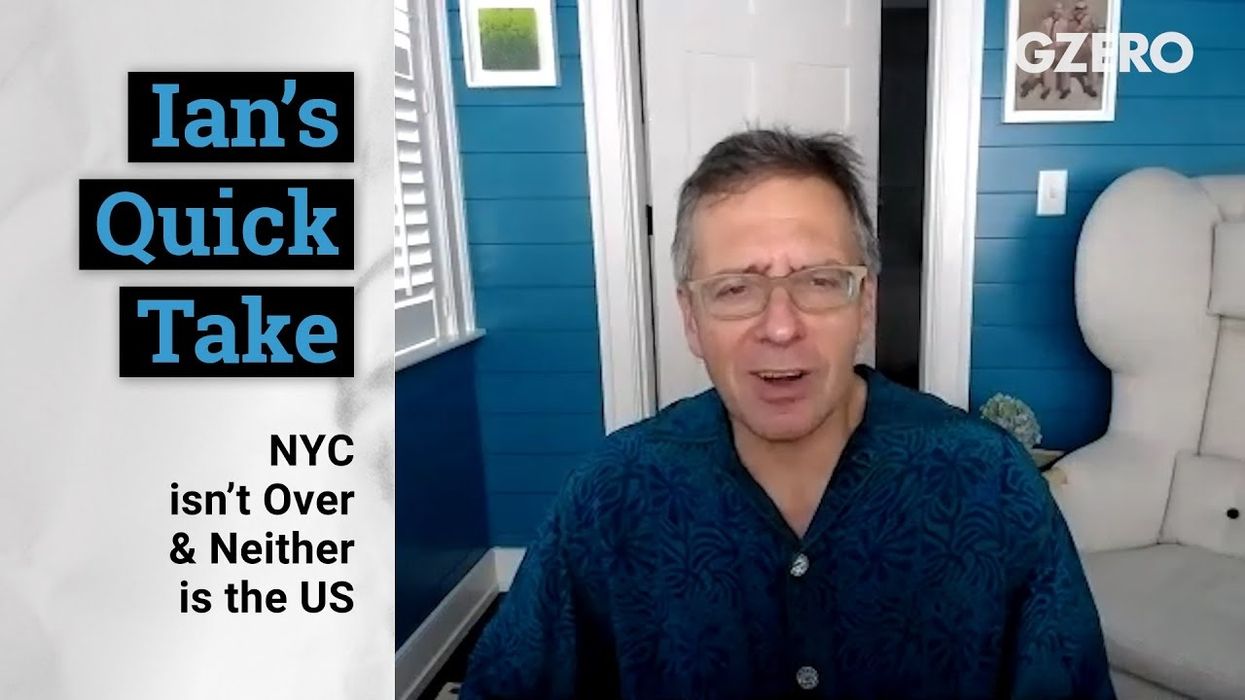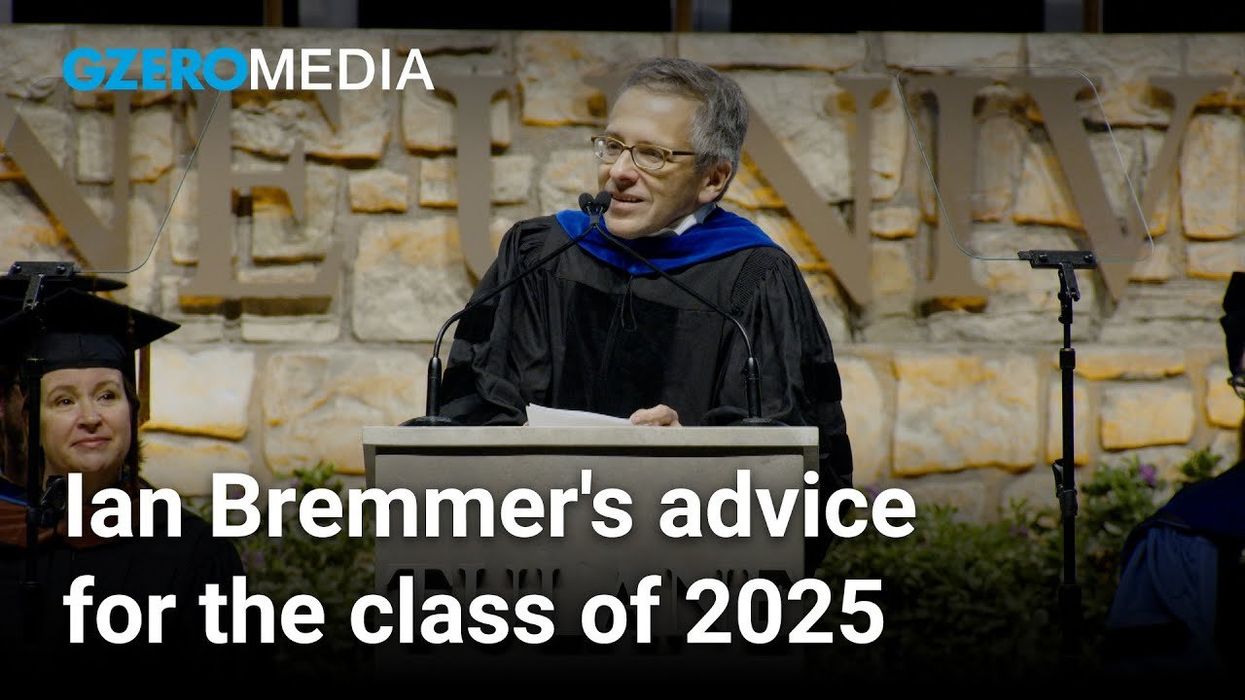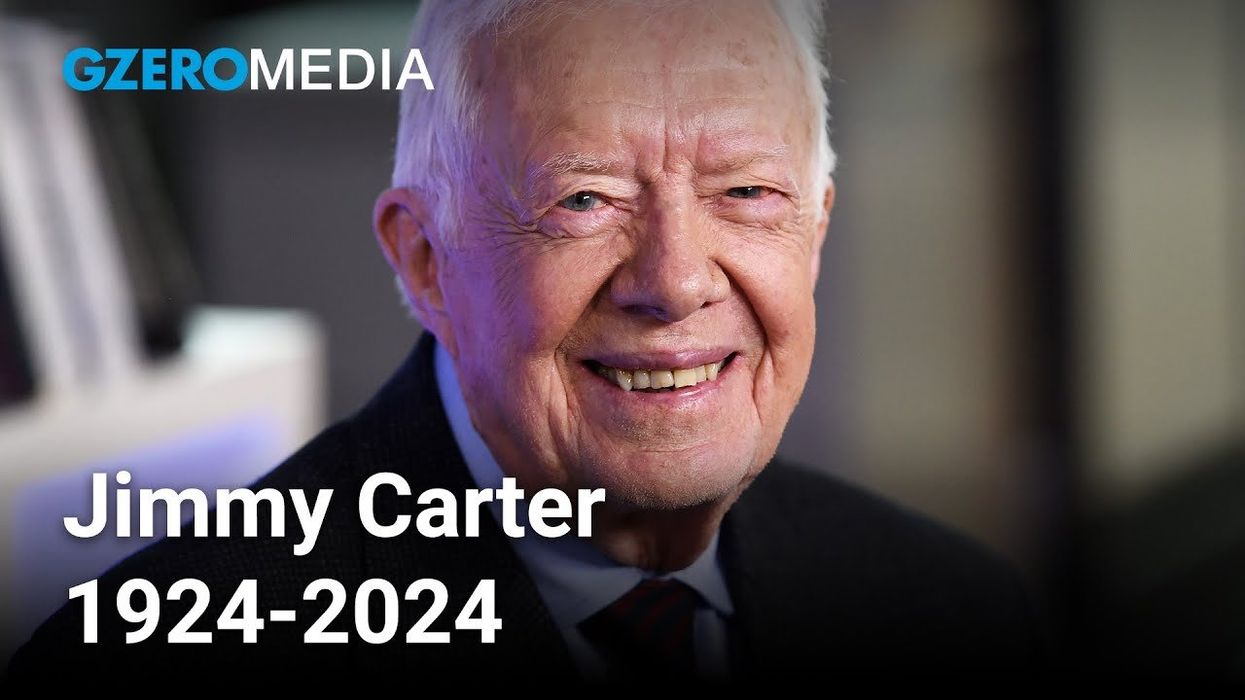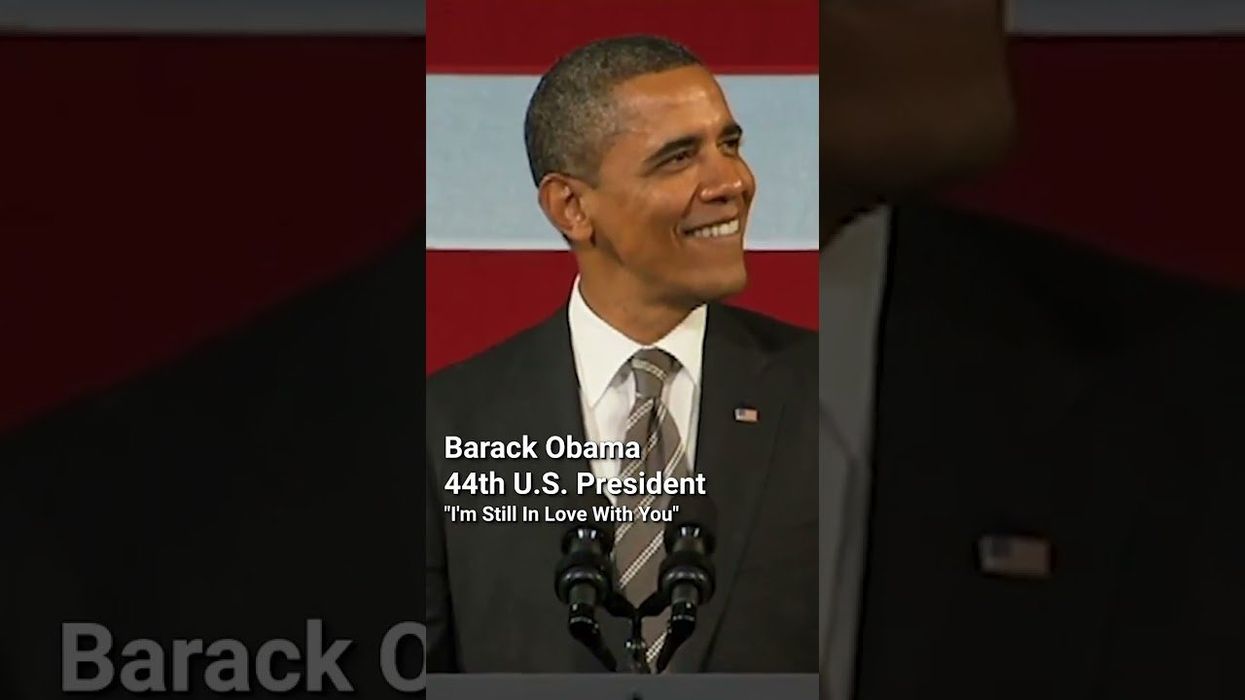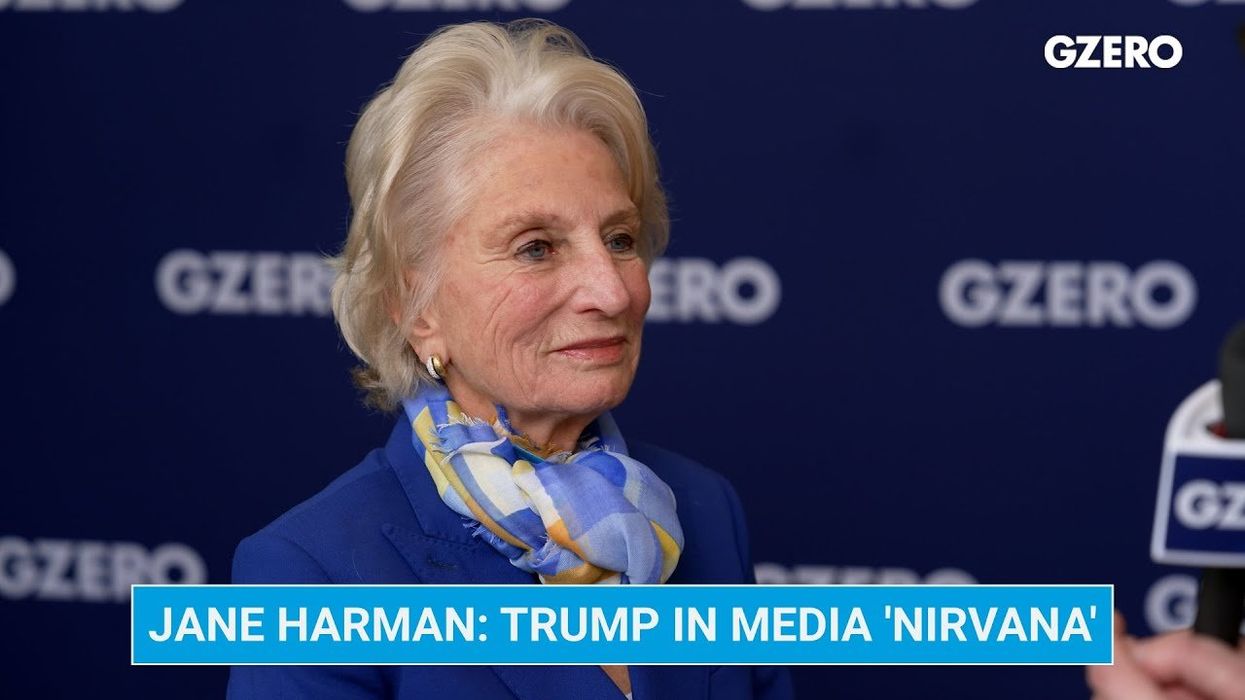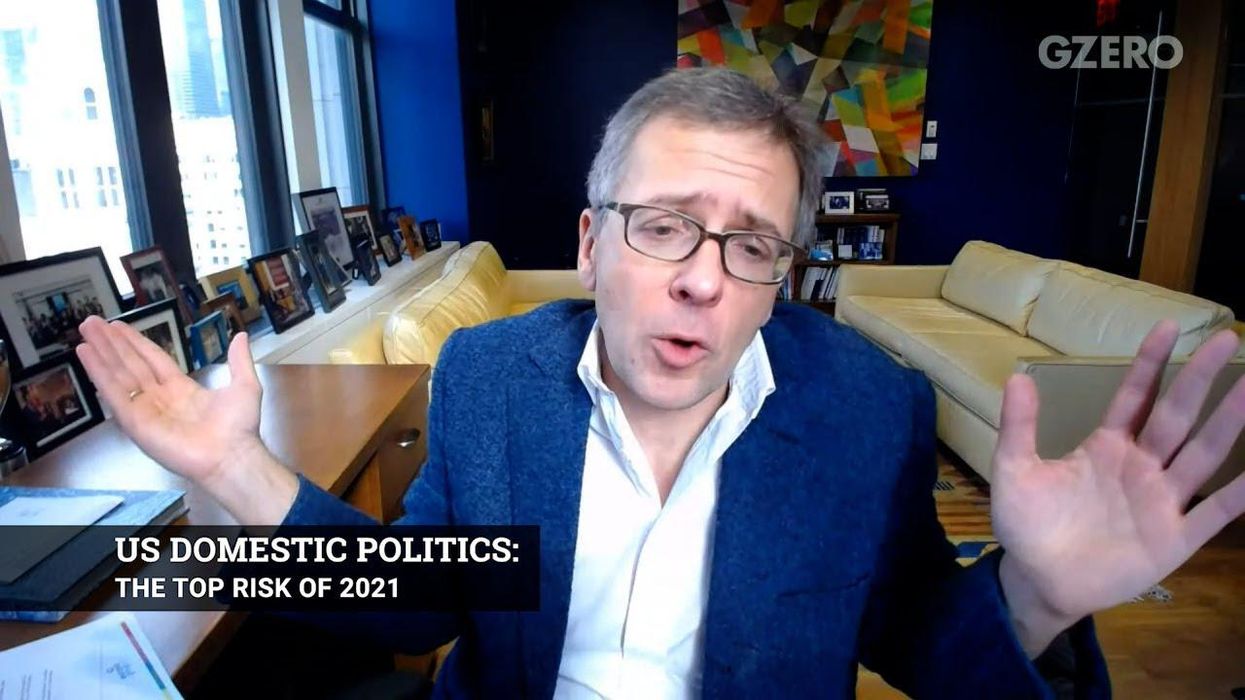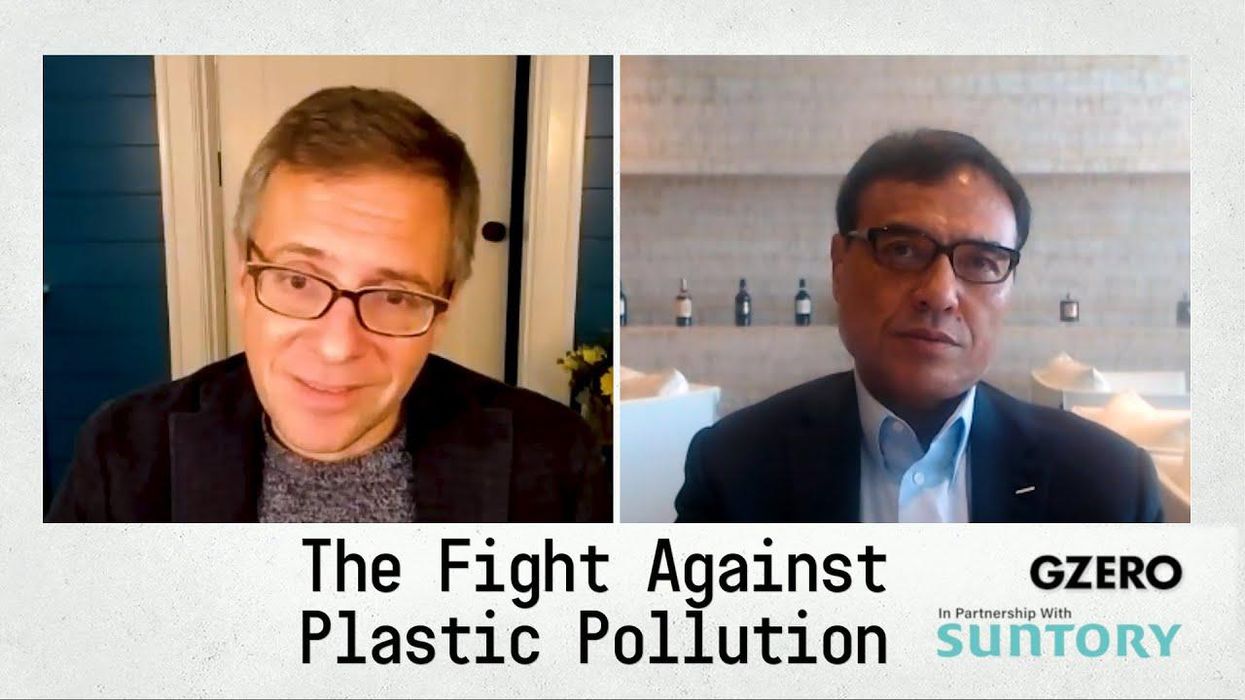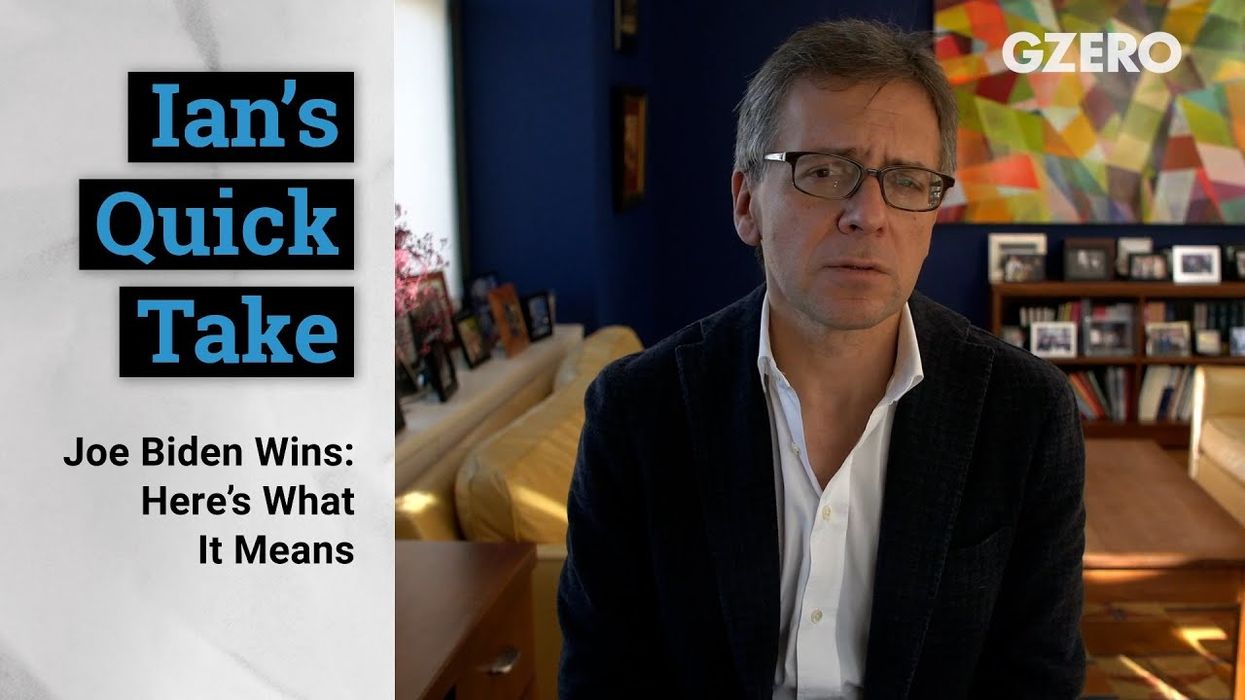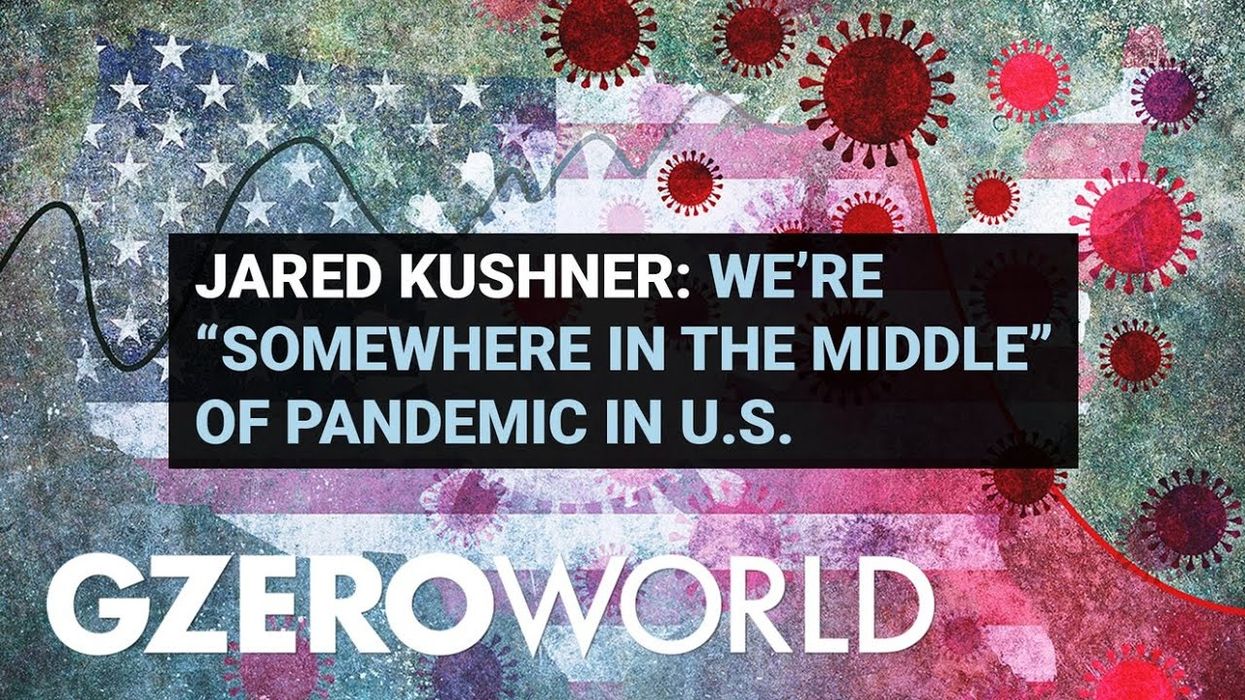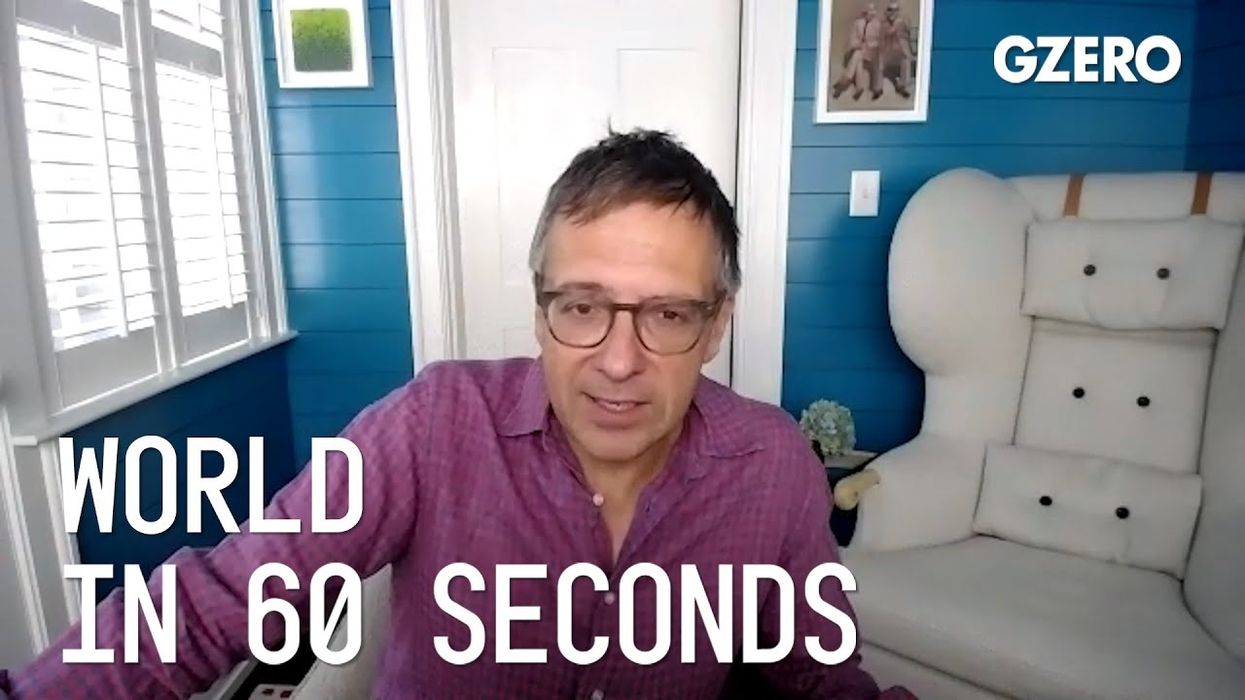VIDEOSGZERO World with Ian BremmerQuick TakePUPPET REGIMEIan ExplainsGZERO ReportsAsk IanGlobal Stage
Site Navigation
Search
Human content,
AI powered search.
Latest Stories
Sign up for GZERO Daily.
Get our latest updates and insights delivered to your inbox.
Global Stage: Live from Davos
WATCH
Video
GZERO Media videos bring you the latest news and analysis about global news and geopolitics, including our television program "GZERO World with Ian Bremmer" and political satire series "Puppet Regime."
Presented by
Watch Ian Bremmer's Quick Take:
When I look at the United States, it is certainly true that our ability to lead by example, our ability to say, the Belarus elections are rigged is hard because, you know, we're claiming that our own elections may well be rigged. So, it's harder to lead by example. And we aren't as happy with our institutions. And the post office is having problems, some self-inflicted, in delivering mail. And when you see, you know, 8,000 chicks being sent to a farmer in Maine, and they all show up and they're dead, you're like, "what the hell?" I mean, it's like the DMV, the US Postal System. We should be able to fix that. And the American dream doesn't apply to a lot of Americans in the way that it did 20, 30, 50 years ago. Inequalities, much more structural. All these things are true. But the idea that the US is in inextricable decline just flies on its face against realities of the country.
A few examples: The relevance of the US dollar, its strength is uncontested. There's nothing else close. The Eurozone is getting weaker. And the Chinese are not moving towards internationalizing and floating the RMB. The Japanese yen, certainly not. So, the willingness of international investors to continue to pile money into the United States has been undaunted and undiminished by everything we've seen in the past years, whether you talk about the financial crisis or more recently, the Trump election or most recently the pandemic. The pandemic tells you that the most important companies out there are the tech companies. Brick and mortar are really going to get hurt. And there are a lot of Americans that are getting hurt on the back of that, and particularly a lot of poorer Americans, particularly a lot of minorities in the United States who are getting hurt the hardest. By the way, that's true in all the other major advanced industrial democracies, too.
But the United States has by far the most powerful tech companies out there. That's going to create asymmetrically more power for the United States, more influence, more ability to set the rules and norms. And those rules and norms may not be liked by other countries. They may not be multilaterally and collectively agreed upon, but the power is still there. The United States today is the world's largest energy producer. They're exporting energy around the world. Largest food exporter. These are really important issues that really matter for power around the world. That's before we talk about the American military, the size which I think is too big. I think we spend far too much money on. I think we've got a lot better return for other sorts of investments in US infrastructure and human capital. But the power internationally and what you're able to do with it is certainly clear. So, the idea that the US has a lot of the things that are broken, sure. The idea the US is in decline, is not coming back, is insane.
New York City, very similar. Right now, New York is not so fun, right? I mean, you know, people aren't going inside to restaurants and they really shouldn't be. And it's very dense. And a lot of wealthy people are in their second and third homes. All of this is true. And yet the level of intellectual attraction, the knowledge economy becoming only much more important, not less. That's really going to hurt second and third tier cities. It's not going to hurt the places where the highest density of knowledge economy workers actually are. And there's no question that people aren't going to need to go to work every day the way they used to post-pandemic. But they will still need to interact personally with their colleagues once, twice, three times a week. So maybe that means the New York metropolitan area gets a little larger. I could easily imagine that Midtown gets hurt and commercial real estate takes a real dump. And you can live farther into, you know, Brooklyn, Bronx, those places get more developed. But that's very different from saying New York City is going to, you know, is on its back foot. I actually think it's exactly the opposite. People that are moving away from first tier global cities are paying no attention to the growth in inequality, the strength of the knowledge economy, the fact that the top 10%, 1%, 0.1% are doing dramatically better on the back of this crisis, as they have over many decades. And that is the principal driver of the top tier global cities in the world of which there aren't as many anymore. London, post-Brexit is more problematic. Hong Kong, post the end of though one state-two systems change from the Chinese government is more problematic. New York City is not. And so, for all of those reasons, I think the it's really early to proclaim New York City is dead. I'm betting very strongly in the other direction. And you guys can put a pin in that.
Also, briefly, just should talk about, you've got the Republican convention starting this evening. We had the DNC last week. They are very different conventions. The Democrats very slickly put together, they knew it was going to be all virtual for all a long time, and so they were able to really plan for it. They put a lot of money into it. They had Hollywood sensibilities. They also had a lot of Hollywood participating. And as a consequence, it was abundantly watchable. It was made for TV and there were a lot of high-profile speeches that went very well. The RNC is clearly going to be very different, is mostly going to be about Trump. Keep in mind, there's a lot more enthusiasm for Trump and there is enthusiasm for Biden. There's a lot broader enthusiasm for the DNC and the Democrats than there is enthusiasm for the Republicans and the RNC. So, it shouldn't surprise anyone that Trump is taking the dominant role and his family at the RNC.
The other thing that's interesting, of course, is it won't be as virtual. It probably won't be anywhere near as slickly put together. It might not work as well on television, but it is going to send more of a message that's about the economy. It's about being in front of people, getting the country working again. That's interesting, not because I think Trump is great on the economy, I actually don't, but he does outperform Biden in the polls on the economy, consistently. It's the only thing he outperforms Biden on. So I thought Biden made a mistake when he said, "I'll listen to the scientists on coronavirus." Yes, definitely say that. But then he said, "and I'll shut the country down if I need to." You don't actually need to shut the country down and Trump is going to use that because that is the strongest argument Trump, who is underwater in the polls right now compared to Biden, has as we move towards November. We look at the next two plus months before this election, and you know, the economy isn't picking up as fast as we'd like it to, but it is picking up.
The coronavirus is still far worse than we would hope to see in the United States. And the total numbers are going to be horrifying, we'll certainly be breaking through 200,000 deaths well before the election, but the number of cases is now coming down, the number of deaths per day is coming down, even the number of positive test results is, in most states in the US now, below the 5% that's recommended for being able to start reopening your economy more quickly. While in many European countries, again, the absolute levels and the numbers per capita of deaths are much, much lower in most countries than in the United States, but the trends are actually now heading in the wrong direction. Particularly in Spain, a number of other countries too.
All of which implies to me that this election is going to get tighter, not farther apart, over the next couple months, barring any Black Swan event. So, we'll see what happens with the RNC. Again, the country's maximally divided. No one's going to agree on any of this stuff. But we'll certainly be covering it.
Keep reading...Show less
More from Video
Remembering Jimmy Carter's foreign policy legacy: Ian Bremmer looks back
December 29, 2024
After COVID, Belgian small business began to bloom
April 02, 2022
Waiting for foot traffic to return in Tokyo
April 02, 2022
Joe Biden wins: here's what it means
November 07, 2020
GZERO Series
GZERO Daily: our free newsletter about global politics
Keep up with what’s going on around the world - and why it matters.
